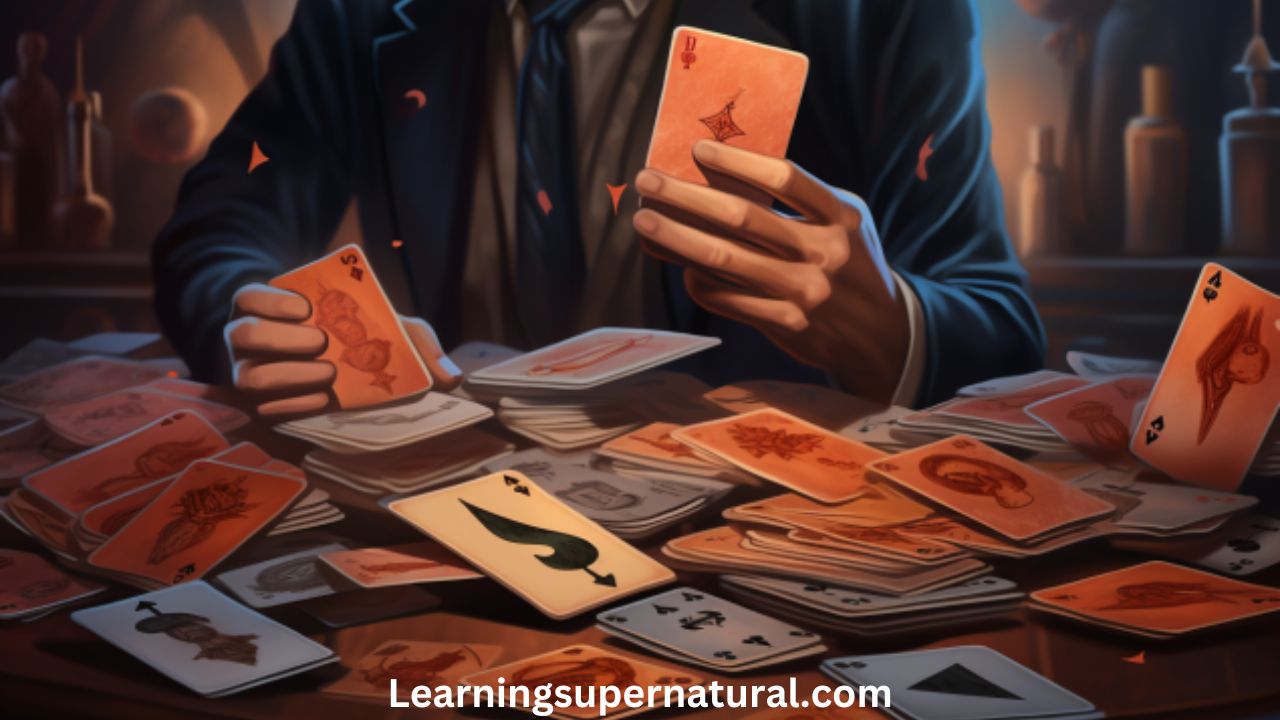The concept of precognition is one that has been around for centuries, and it’s still a topic of debate today. It refers to the ability to predict events before they happen–and while many believe in this phenomenon, there are also those who argue against its validity.

One of the main issues with precognitive abilities is false positives: when an individual claims to have had a premonition about something which doesn’t come true.
False positives are not only frustrating for those who experience them but can also cause skepticism amongst non-believers. They raise questions as to whether or not any predictions made by someone claiming precognitive abilities should be taken seriously.
By exploring how false positives arise and what steps can be taken to prevent them from occurring, we may gain insight into their implications on our understanding of precognition overall.
What Are False Positives?
False positives are incorrect readings and interpretations of precognitive abilities. They can occur when alternative explanations or cognitive biases influence the interpretation process.
For example, a person may interpret an event as being preordained, while in reality it was merely a coincidence. This could give the perception that they have extra-sensory abilities when none exist.
Furthermore false positives can also arise from mistaken assumptions about how precognition works, such as believing that future events should be easily foreseeable to one who has access to this knowledge.
All these factors can contribute to a misconstrued understanding of precognitive ability and lead to people falsely assuming they possess powers that do not actually exist.
With this in mind, let us take a closer look at what causes false positives in precognitive abilities.
Causes Of False Positives In Precognitive Abilities
In the previous section, we discussed what false positives are and why they can be so dangerous. Now let’s dive into the causes of false positives in precognitive abilities.
One major cause is mindset bias: The belief that one’s own thoughts and feelings will influence how reality plays out – also known as magical thinking. This type of cognitive distortion leads to people believing that their ideas have greater power than they actually do, leading many to overestimate their precognition skills.
The second cause is confirmation bias. This phenomenon occurs when individuals look for evidence that supports a certain conclusion while ignoring contradictory information. As a result, believers may pay more attention to predictions that come true instead of those that don’t – skewing their perception of success rate and reinforcing any existing biases towards precognitive ability.
Finally, social pressure can often lead people to over-emphasize their accuracy or certainty about a particular prediction, even if it is made without any real basis in fact. For example, someone might make an exaggerated claim about a prophecy simply because they feel expected by others to be confident in their beliefs regardless of whether the prediction was accurate or not.
These three factors work together to create situations where supporters of precognitive abilities are likely to experience more “hits” than misses – making them increasingly convinced of its potential despite little scientific proof.
That said, there still remain questions around the impact of these false positives on believers, which we will explore next…
The Impact Of False Positives On Believers
False positives can have a significant impact on believers in precognitive abilities. For those who rely heavily on their intuition, having false positive results can be deeply disheartening and cause them to doubt the power of their conviction.
It takes an emotional toll that can lead to feelings of inadequacy or frustration when predictions do not come true. For those who are already doubting the veracity of such powers, having false positives only serves to further weaken their faith in any spiritualistic outlooks.
This lack of trust causes individuals to become more skeptical and less likely to believe in supernatural phenomena at all. As a result, it becomes increasingly difficult for anyone seeking guidance from sources beyond this realm to find genuine answers.
The psychological effects of these experiences can be damaging and long-lasting.
Strategies For Minimizing False Positives
They say that hindsight is 20/20, and this rings true when it comes to false positives in precognitive abilities. As researchers in the field of parapsychology strive for accuracy, there are a few key strategies they can use to minimize these errors.
Questioning validity and analyzing biases are two primary methods used to ensure data integrity and trustworthiness. In order to identify potential problems with the outcome of an experiment or study, it is important to ask questions about how valid the results actually are. Is the control group large enough? Are all bias factors accounted for? Answering such questions allows researchers to gain insight into any potentially flawed conclusions.
Additionally, being aware of one’s own preconceptions and personal biases is also necessary in order to properly assess data objectively. Taking steps towards understanding how an individual’s values may influence their interpretation helps create more accurate results overall. Exploring alternative perspectives allows for broader insights as well as opportunities for deeper learning from each experience.
As we move forward into exploring the implications of false positives on the study of precognition, it is essential for us to keep these strategies at hand so that our research remains reliable and trustworthy.
The Implications Of False Positives On The Study Of Precognition

False positives in precognitive abilities can be extremely detrimental to research and the credibility of findings. It is important for researchers to understand strategies for minimizing false positives, such as controlling emotionality bias and cognitive dissonance.
The implications of false positives on the study of precognition are far-reaching and problematic. Not only does it threaten the validity of studies, but it also erodes trust in existing results among the public.
Additionally, false positives could lead to incorrect interpretations being made by researchers which could have a lasting negative impact on future explorations into this field.
The prevalence of these issues should not be underestimated–the potential consequences must always be taken into consideration when conducting experiments involving precognitive abilities.
For these reasons, every effort should be made to reduce or eliminate false positive results wherever possible.
Frequently Asked Questions [FAQs]
What Evidence Is There For The Existence Of Precognition?
The idea of precognition, or the ability to perceive events before they actually occur, is often dismissed as nothing more than a superstitious belief in supernatural forces and paranormal activity.
However, there is evidence that suggests otherwise.
For example, studies have shown that certain individuals possess an uncanny ability to accurately predict future events with remarkable accuracy.
This indicates that precognition is not only real but also has measurable effects on people’s lives.
Furthermore, it may be possible to use this power in order to benefit society by predicting potential disasters or other unforeseen circumstances.
While false positives remain a challenge when attempting to study precognitive abilities scientifically, the presence of tangible evidence makes it difficult to deny its existence altogether.
How Does The Prevalence Of False Positives Affect The Credibility Of Precognition?
The prevalence of false positives in precognitive abilities has been a major source of contention when considering the credibility of such paranormal claims.
With alternative theories and predictive models being developed, research ethics are often called into question with regards to how realistic these outcomes can be.
False positive results have caused many to doubt the validity of any data generated from these experiments, leaving only speculation and uncertainty as to the true potential of precognition.
Is There Any Way To Distinguish Between True And False Precognitive Abilities?
As the saying goes, “trust but verify”; when it comes to precognitive abilities and understanding how to separate true from false positives, this adage is especially pertinent.
With respect to the current H2—is there any way to distinguish between true and false precognitive abilities?—the answer is yes.
Interpreting data correctly as well as identifying anomalous events can help identify situations where a person’s ability for precognition is legitimate rather than potentially deceptive.
Thus, utilizing these methods of analysis in conjunction with careful consideration may go a long way towards uncovering actual evidence of genuine precognitive abilities.
What Are The Potential Applications Of Precognitive Abilities?
Precognitive abilities can have a range of potential applications in different fields.
For example, risk assessment and predictive analytics could potentially benefit from the use of precognitive abilities to anticipate future events. This data could help organizations identify potential challenges before they arise, allowing for more proactive decision-making and improved strategic planning.
Precognition could also be used to gain an advantage in high-stakes situations such as stock markets or sports betting. By using their gift to accurately predict outcomes, individuals with precognitive abilities may be able to make calculated decisions that put them ahead financially.
Can False Positives Be Completely Eliminated?
The question of whether false positives can be completely eliminated from precognitive abilities has been explored by parapsychology research for decades. Despite this, there is still no definitive answer as to why some people experience what appears to be a psychic event without any neurological explanation.
Some believe that with enough data and further study the issue of false positives could eventually be resolved, but it remains unclear if complete elimination is possible at present.
Conclusion
Precognition is an intriguing phenomenon that has yet to be fully understood. Despite the prevalence of false positives, there are many promising applications for this ability.
With further research, it may even be possible to distinguish between true and false precognitive abilities; eliminating the problem of false positives entirely.
Imagining a world where precognition can be used in everyday life is exciting, but at present we must focus on discovering how to make this dream a reality.
I believe with enough effort, these elusive abilities will become more reliable and accessible than ever before.




